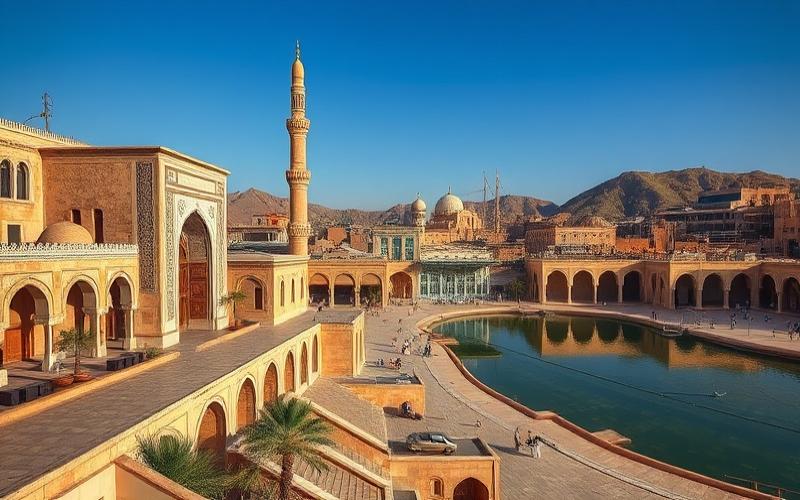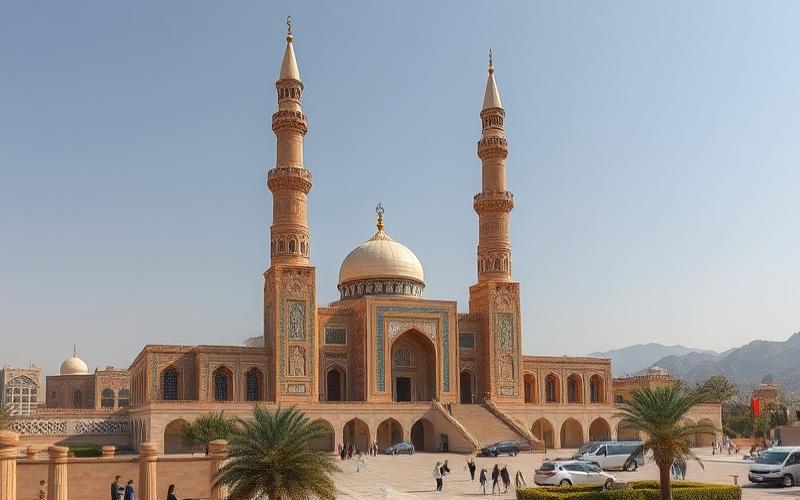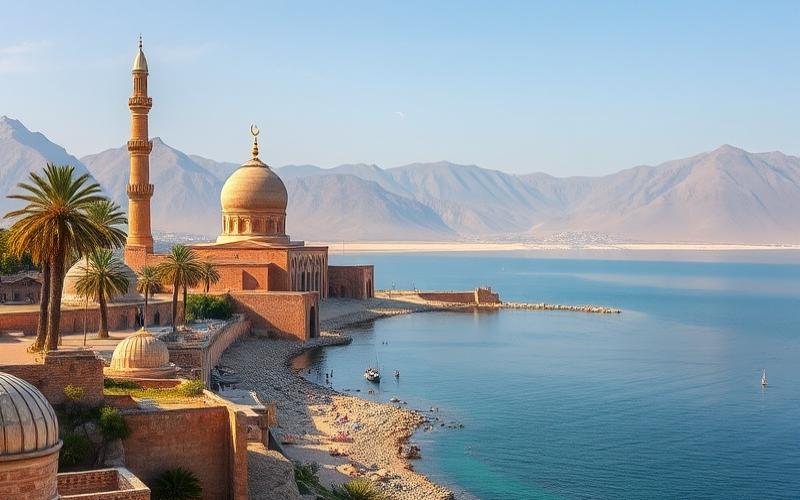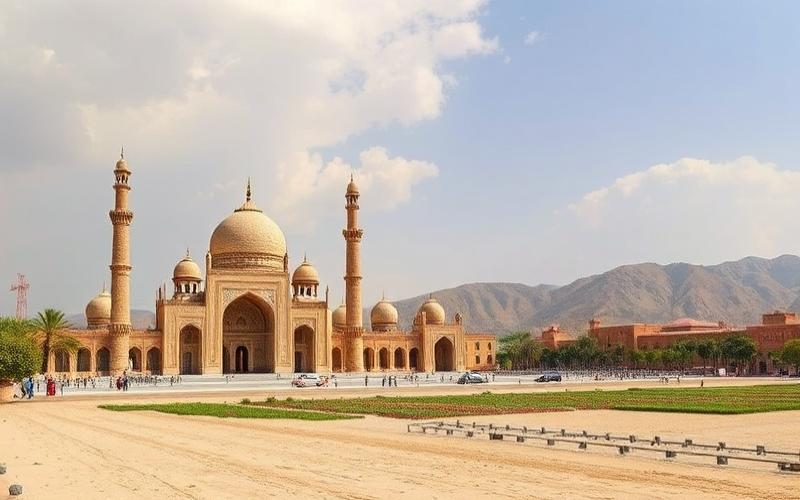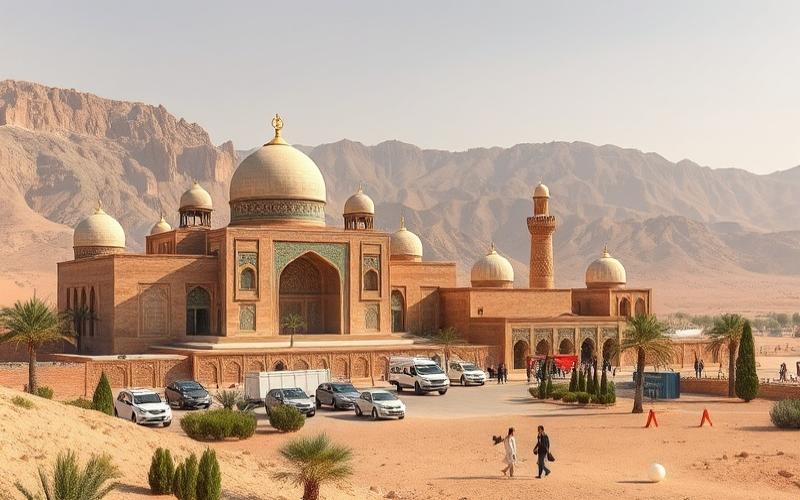
 Published on and written by Cyril Jarnias
Published on and written by Cyril Jarnias
Bahrain, a small island nation in the Persian Gulf, has experienced rapid economic development in recent decades. This growth has been accompanied by an evolution in labor law, aiming to reconcile the demands of a modern economy with local traditions. Let’s dive into the specifics of Bahraini labor law, a system that attempts to strike a balance between employer interests and worker protection.
Employment Contracts: The Cornerstone of Professional Relationships
In Bahrain, the employment contract forms the foundation of all professional relationships. The 2012 Private Sector Labor Law governs relations between employers and employees. This legislation provides for two main types of contracts: fixed-term and indefinite-term.
Fixed-term contracts are established for a specific period, typically not exceeding five years. They can be renewed by mutual agreement between employer and employee. Indefinite-term contracts, on the other hand, have no predetermined end date and continue until either party terminates them according to legal provisions.
Employment contracts must be written in Arabic. An English translation may be attached, but in case of dispute, the Arabic version prevails. The contract must specify essential elements such as the nature of work, salary, probation period duration (which cannot exceed three months), and termination conditions.
A unique aspect of Bahraini labor law is the importance given to the probation period. During this period, which can last up to three months, either employer or employee may terminate the contract without notice or compensation. This flexibility aims to allow both parties to assess the compatibility of their professional relationship.
Good to know:
In Bahrain, the law provides special protection for Bahraini workers. Employers are required to prioritize hiring qualified Bahraini citizens before recruiting foreign workers.
Social Obligations: An Evolving System
The social security system in Bahrain is constantly evolving, reflecting government efforts to improve worker social protection while maintaining a business-friendly environment.
Social insurance is mandatory for all Bahraini employees working in the private sector. Employers are required to contribute 12% of the employee’s salary, while employees contribute 7%. These contributions cover retirement pensions, unemployment insurance, and work accident insurance.
For expatriate workers, the system is different. Employers must purchase private health insurance for their foreign employees and their families. Additionally, they are required to contribute to an end-of-service benefit fund, which is paid to the employee upon contract termination.
A unique feature of the Bahraini system is the existence of Tamkeen, a government fund aimed at supporting private sector development. This fund offers training programs and financial support to companies that invest in training and developing their Bahraini employees.
Maternity protection is also an important aspect of Bahraini labor law. Women are entitled to 60 days of maternity leave, with 45 days fully paid. Furthermore, after returning to work, they are entitled to two daily one-hour breaks for breastfeeding their child, for a period of six months.
Good to know:
The Bahraini government actively encourages “Bahrainization” of the workforce, imposing quotas for Bahraini employees in certain sectors and offering incentives to companies that exceed these quotas.
Minimum Wage: An Ongoing Debate
Unlike many countries, Bahrain does not have a universal legal minimum wage. However, this doesn’t mean wage issues are unregulated. The Bahraini government has established mechanisms to ensure fair worker compensation.
In the public sector, there is a minimum wage for Bahraini citizens, which is regularly reviewed by the government. In the private sector, the situation is more complex. While there’s no universal minimum wage, certain sectors have minimum wages set by collective agreements or government decisions.
For expatriate workers, the situation is different again. Wages are generally determined by market forces and bilateral agreements between Bahrain and workers’ home countries. However, the Bahraini government has implemented measures to protect foreign workers from exploitation, including requiring that employment contracts clearly specify salary and benefits.
A unique aspect of the Bahraini wage system is the end-of-service benefit. Employers are required to pay this benefit to their expatriate employees upon contract termination. The amount is calculated based on length of service and the employee’s final salary.
The debate about introducing a universal minimum wage is ongoing in Bahrain. Proponents argue it would protect the most vulnerable workers, while opponents fear it might reduce the competitiveness of the Bahraini economy.
Good to know:
Although there’s no universal minimum wage, the Bahraini government closely monitors wage levels in the private sector and sometimes intervenes to adjust wages in certain sectors if necessary.
Average Compensation: Reflecting Bahrain’s Dynamic Economy
Average compensation in Bahrain reflects the country’s position as an important financial and commercial hub in the Gulf region. However, significant disparities exist between different sectors and between Bahraini and expatriate workers.
According to the latest available data, the average monthly salary in Bahrain is approximately 770 Bahraini dinars (about $2,040 USD). However, this figure masks significant variations. In the financial sector, for example, average salaries are considerably higher, reaching 1,500 Bahraini dinars or more per month.
It’s important to note that these averages include both Bahraini and expatriate workers. Generally, Bahraini citizens tend to have higher salaries, particularly in the public sector where they often receive additional benefits.
The highest-paying sectors in Bahrain are typically finance, information technology, oil and gas, and management. At the other end of the spectrum, retail, hospitality, and construction sectors tend to offer lower wages.
It’s also important to note that many employers in Bahrain offer benefits in addition to base salary. These benefits may include housing, transportation allowances, health insurance, and annual air tickets for expatriates.
Good to know:
The Bahraini government regularly publishes reports on average wages in different sectors. This information is used to guide employment policies and wage negotiations.
Salary Skills: An Evolving Labor Market
The labor market in Bahrain is constantly evolving, reflecting changes in the country’s economy and government efforts to diversify beyond the oil sector. This evolution significantly impacts in-demand skills and associated salaries.
The most in-demand and highest-paying skills in Bahrain are currently in technology, finance, and management. Technology professionals, particularly those specializing in artificial intelligence, cybersecurity, and data analysis, are highly sought after and can command high salaries.
In the financial sector, which is a pillar of Bahrain’s economy, skills in risk management, regulatory compliance, and Islamic finance are particularly valued. Professionals with these skills can expect salaries significantly above the national average.
The Bahraini government strongly emphasizes developing the skills of its local population. Training and development programs are implemented to improve Bahrainis’ employability in key economic sectors. This initiative, known as “Bahrainization,” aims to reduce the country’s dependence on expatriate labor.
For expatriates, language skills are often an important factor in determining salaries. English proficiency is generally required in international companies, while knowledge of Arabic can be an additional asset.
Good to know:
The Bahraini government has implemented a “skills points” system for expatriate workers. This system aims to attract highly skilled workers by offering them additional benefits and greater flexibility regarding visas and residency.
Unions and Workers’ Rights: A Delicate Balance
Labor law in Bahrain has seen significant developments in recent years, particularly regarding workers’ rights and union recognition. However, the situation remains complex and sometimes controversial.
Unions have been legal in Bahrain since 2002, when the country ratified several International Labor Organization (ILO) conventions. The law permits union formation in most sectors, except for certain essential services like security and defense.
The General Federation of Bahrain Trade Unions (GFBTU) is the country’s main union organization. It represents workers in negotiations with the government and employers on issues such as wages, working conditions, and workers’ rights.
However, the right to strike is subject to significant restrictions. Strikes are prohibited in sectors considered vital to the national economy, and any strike must be approved by at least 50% of the workers in the concerned company.
Expatriate workers, who constitute a significant portion of Bahrain’s workforce, have the right to join unions but cannot hold leadership positions within these organizations. This restriction has been criticized by international human rights organizations.
In terms of worker rights protection, Bahraini law provides several important provisions. For example, discrimination based on gender, origin, language, religion, or beliefs is prohibited. The law also provides protections against workplace harassment.
The Bahraini government has also established mechanisms to resolve labor disputes. The Ministry of Labor has a mediation service for employer-employee disputes, and specialized courts exist to handle labor-related cases.
Good to know:
Bahrain recently introduced a “flexible work permit” system for certain expatriate workers. This system allows workers to work without a sponsor, giving them more freedom to change jobs and negotiate their working conditions.
In conclusion, labor law in Bahrain is an evolving system, seeking to reconcile the demands of a modern economy with local traditions and international standards. While progress has been made in many areas, challenges remain, particularly regarding expatriate workers’ rights and union freedom. As Bahrain continues to develop and diversify its economy, its labor law will likely continue to evolve to meet the changing needs of its workforce and economy.
Disclaimer: The information provided on this website is for informational purposes only and does not constitute financial, legal, or professional advice. We encourage you to consult qualified experts before making any investment, real estate, or expatriation decisions. Although we strive to maintain up-to-date and accurate information, we do not guarantee the completeness, accuracy, or timeliness of the proposed content. As investment and expatriation involve risks, we disclaim any liability for potential losses or damages arising from the use of this site. Your use of this site confirms your acceptance of these terms and your understanding of the associated risks.




